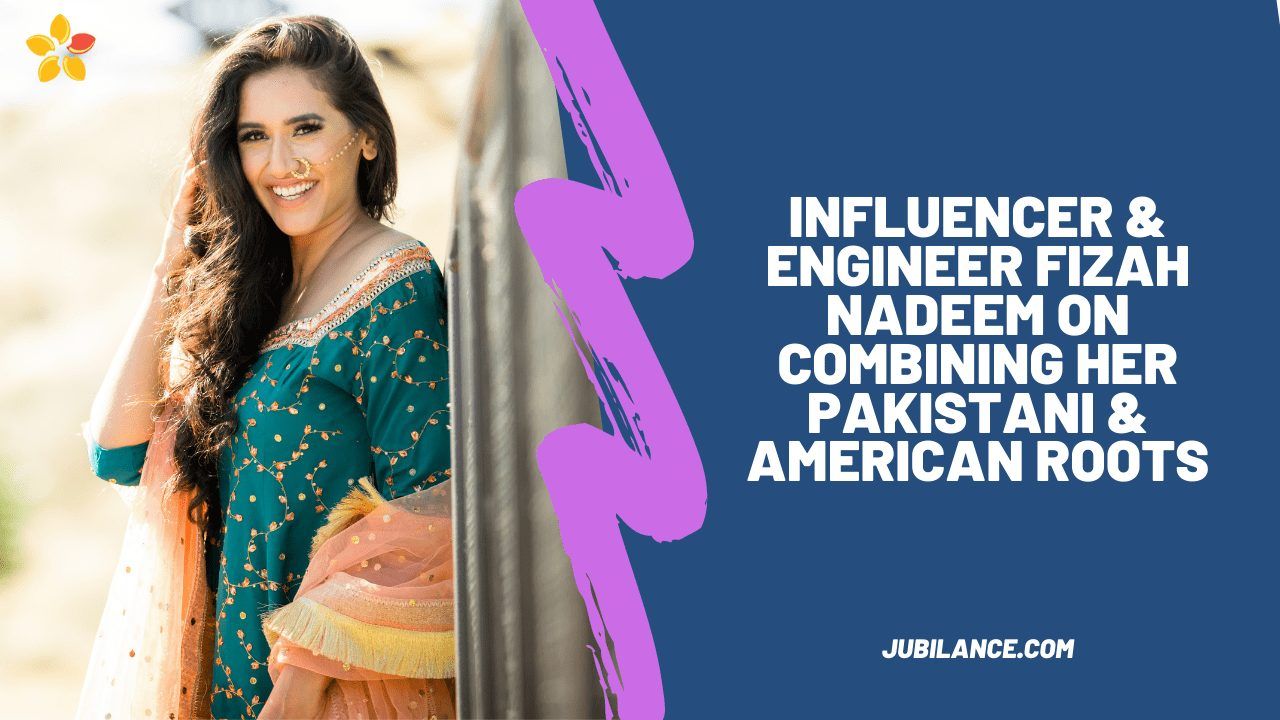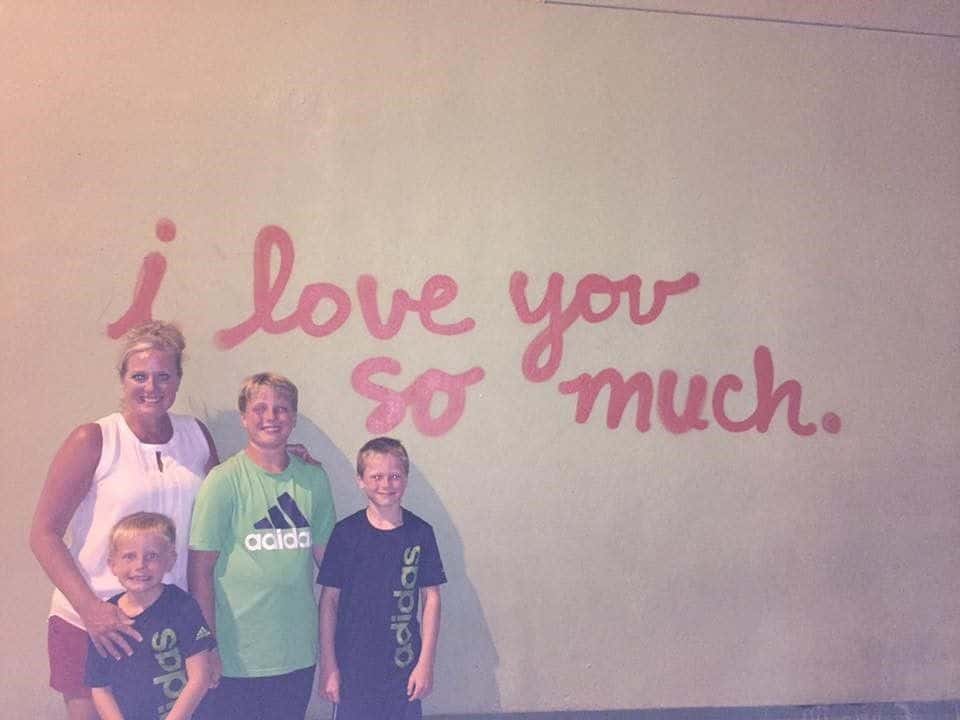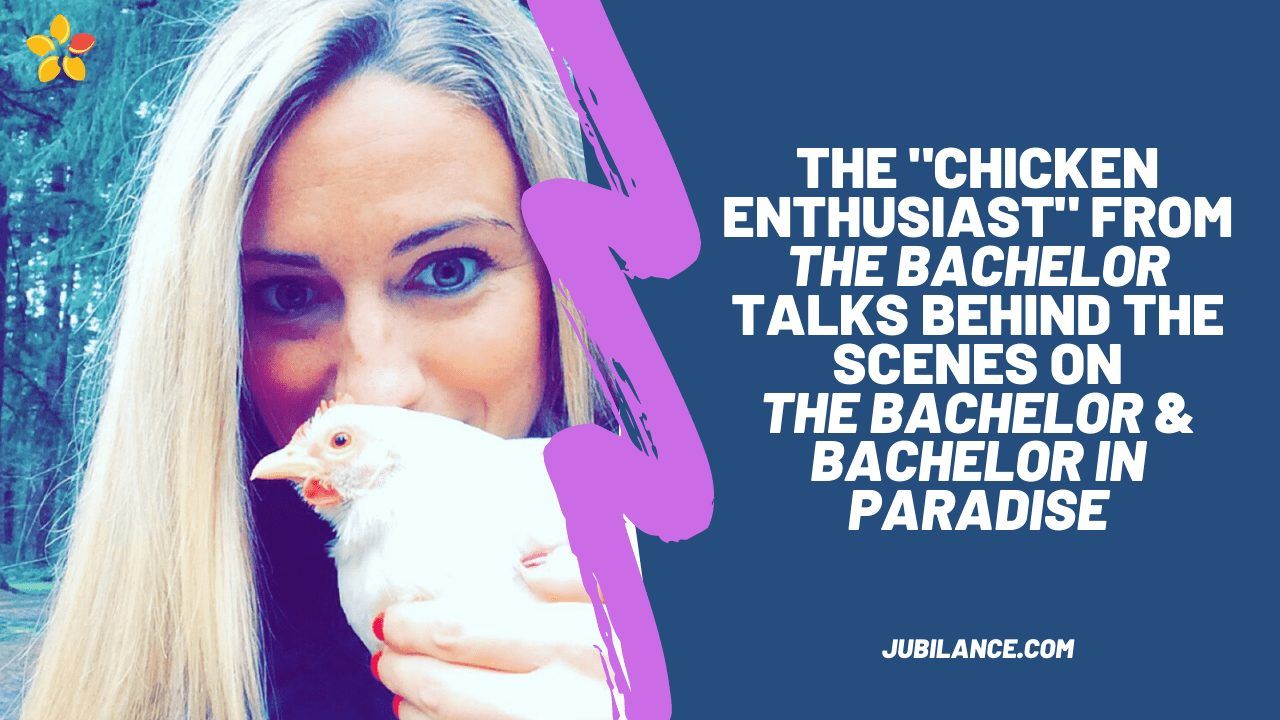Fizah Nadeem is not only a fashion icon, she is incredibly smart as an MBA candidate, and also an electrical engineer. We are talking to her about her life as an influencer, integrating her Pakistani heritage into fashion and womanhood.
Watch her interview here:
Listen to her interview here:
Read her interview here:
Alice: Fizah Nadeem is not only a fashion icon, she is incredibly smart as an MBA candidate, and also an electrical engineer. We are talking to her about her life as an influencer, integrating her Pakistani heritage into fashion and womanhood. Welcome, Fizah!
Fizah: Thank you so much, Alice, for having me on the show.
Alice: Yes. We are so excited to have you.
Fizah: Thank you.
Alice: Thanks for being here.
Fizah: Of course.
Alice: Okay, so you have to let me know. What is your favorite fashion trend right now?
Fizah: I am wearing it right now. It is the poufy sleeves. The broad shoulders and the poufy shoulders and the padded shoulders are my favorite fashion trend.
Alice: Oh my gosh. So we are going back to the eighties, a little bit.
Fizah: Definitely. It is so funny because my fiancé always makes fun of me. He is like, “You look like Frankenstein. What are you doing?”
Alice: What?
Fizah: But it is fashion. I think it just elevates every look.
Alice: Okay. I have got to get into the poufy sleeves.
Fizah: You totally do. I think it is so much fun.
Alice: That is so cool. Okay, what is your favorite thing to cook?
Fizah: So, I am not really a chef, but my favorite thing to cook would probably be pasta because that is the only thing I know how to cook.
Alice: That is good. That is a solid. You can have it for every meal.
Fizah: Really, and there are so many varieties of pasta, so I think I can cook sometimes. It makes me feel better about myself.
Alice: Amazing. You have traveled the world. Where is your favorite place you have been?
Fizah: I think my favorite place for sure, culturally, is Saudi Arabia. I think it is more of a cultural difference and it is definitely an eye opener. Just because there is just so many different- I went in for religious purposes, I went for a pilgrimage. It was more of a religious, spiritual journey. So, that is definitely one of my favorite places. And then, Cancun was just a lot of fun. Completely different places.
Alice: Wow. Totally different vibes.
Fizah: Yes, very. But those would be my favorite places.
Alice: That is wonderful. Where are you living now?
Fizah: I am living in Stevenson Ranch, which is a suburb of LA. It is about thirty minutes north of LA.
Alice: Cool.
Fizah: I live with my parents and my three annoying siblings. I grew up here and lived here my entire life.
Alice: Are you the oldest?
Fizah: I am, unfortunately, the oldest.
Alice: I am the oldest of two siblings, as well.
Fizah: You feel my pain?
Alice: Yes.
Fizah: I raised the other three kids.
Alice: Okay. Are they sisters or brothers?
Fizah: I have two younger sisters and the youngest is the brother, so he is the spoiled one.
Alice: Okay. They wear all your clothes, right?
Fizah: Absolutely. Actually, I am wearing my sister’s shirt right now, if she knew!
Alice: This is also my sister’s jacket.
Fizah: There are so many benefits of having sisters. So I mean, why not use it right?
Alice: Yes. Share the closet.
Fizah: Yes.
Alice: Can you talk about your favorites in LA? What is your favorite part there? What is your favorite restaurant? Where should we go?
Fizah: Sure. My favorite thing about LA is the beach. I love my beaches. If anyone asks me, “Where do you want to go?” I would say, “The beach.” even if it is wintertime. That is definitely one of my favorite parts. I think the diversity of LA is so unique because I have traveled to other parts of the country and it is just so different.
Alice: Yes.
Fizah: I was in Ohio one time and I had such a culture shock and this is in the United States. Do you know what I am saying? Definitely the diversity and the beaches. My favorite place is Javier’s. If anyone eats Mexican food, theirs is really good. There are three locations in California, so if anyone is in California, definitely try Javier’s.
Alice: That is awesome. I have to hit that up. I love some Mexican food.
Fizah: Oh my God, it is so good. I think California has some of the best Mexican food.
Alice: It is so good. I am currently in New York City. It is just like, “I have tried so hard to find a good Mexican place.”
Fizah: But New York City has amazing food?
Alice: There is really good food, there is a lot of really good TexMex, but not like California.
Fizah: Like actual Mexican food?
Alice: Right next to the border.
Fizah: The next time you come to California, I will take you to these spots.
Alice: Okay, great. Thank you. Can you talk about what you have been up to in quarantine? You mentioned before that you have been really busy. What are you up to?
Fizah: I have been working so I am three days in the office and then two days at home. I also just started my MBA in August.
Alice: Amazing.
Fizah: I am just figuring out how to balance both because I am taking about twelve units. So Monday through Thursday, at night, from seven to ten, I have class. Then, from seven to four, I have work. I have three hours to work out, talk to my friends, do homework, so it is just kind of been everywhere. Before I started my MBA, during the beginning of quarantine, I was trying to do other things. I started kickboxing, jump roping.
Alice: Cool.
Fizah: Yes. It was really cool. So I have it all set up in my backyard. Those are my new hobbies.
Alice: Oh, that is fun. Yes, we all have to have our exercise routines because the gyms were so shaken up.
Fizah: Oh my God, yes. They are starting to open up again, but I do not know how much I trust that.
Alice: I am so scared of that.
Fizah: I know.
Alice: I breathe horribly at the gym. I am like [heavy breathing], like about to die.
Fizah: Oh my God, yes. I am like yakking at the gym. I just do not want to get anyone’s yak on me or vice versa, you know?
Alice: Exactly. Can you talk a little bit about getting into fashion blogging? I found you on Instagram and you just are like the most stylish. Can you talk about-?
Fizah: You are so sweet.
Alice: Thanks.
Fizah: I actually do not even know how I got into it. I kind of did it for myself at first. I like to rearrange pictures and see a color pattern, I like to do different things like that. I kind of started doing it on my own and then people actually enjoyed it. Then I was like, “Okay, then cool. Then I guess I will start actually doing it part-time, whenever I have time.” I would always dress up and take pictures every time that I went outside. I just started very naturally.
Alice: That is awesome.
Fizah: I just do it for fun. Honestly, I do not ever see myself making a future out of it, but it makes me happy.
Alice: Yes. Why not? You combine your American streetwear with Pakistani streetwear. Can you talk a little bit about combining these two cultures on your blog and your feed?
Fizah: Sure. When I was younger, I was actually super embarrassed to be Pakistani.
Alice: No!
Fizah: I know, it is horrible. I think, growing up, I felt like it was more okay to be Pakistani. It was okay to dress a certain way, it was fine to show off my culture. I did go to a white-majority school, so it was a little bit difficult being one of the only few Brown people there. As I grew up, I was more confident in who I became as a person and kind of mixing both of them. I was able to actually incorporate my Pakistani things into my American things and vice versa. Like adding a blinged-out necklace to jeans and a shirt, you know what I am saying?
Alice: Yes.
Fizah: Or adding a cool jean jacket on top of Pakistani clothes. Just mixing both of them created almost a sense of balance in my life that I felt like I never had before. And I do now.
Alice: That is wonderful. I do not know much about Pakistani traditional clothing but in your photos, you have some beautiful dresses on and beautiful clothing. Can you talk a little bit about the differences between traditional Pakistani dress and more American clothing?
Fizah: Sure. American clothing, I feel, is a lot more straightforward as in there are few pieces that you can mix and match. Like there are jeans, skirts and all of that. Pakistani clothing is kind of one outfit that just has different variations. So it will be like a small shirt or a long shirt along with different styles of that. There are also the sarees, the lehengas. So, there are just so many other different variations and it is a lot more blinged out than it is.
Alice: Yes. I love it.
Fizah: Yes. So I feel like there is a little bit more variation when it comes to that. I also enjoy different colors. I feel like with my American clothes, I just wear my whites and my blacks and my jeans. Pakistani clothes, I think, are just a little bit more fun.
Alice: Yes. The colors are so bright and vibrant. I am in New York, so everyone is just in black all the time. Last year, I decided I am not buying any more black things. I have enough. I guess this is black, but I was like, “I am going to buy only colors.” I have kind of tried to make that choice, but it is nowhere near-
Fizah: I wore black to work yesterday, all black. Everyone is like, “Why are you going to a funeral?” I was like, “I do not even know why I am wearing all black. It is a hundred and four outside.”
Alice: Oh my God, California!
Fizah: I know the beauties of California.
Alice: Oh, my gosh. Amazing. We talked a little bit about your wedding before this. Can you talk about planning a wedding in COVID?
Fizah: Sure. I was supposed to originally get married in June. That did not happen because of COVID. I was supposed to have four hundred people at my wedding, an insane amount.
Alice: That is so many.
Fizah: I obviously could not do that. I know. Now that I am changing it up, I am doing a smaller wedding in December. I think it is a lot less stressful for sure. Having four hundred people, having four events, it was a lot. It is very easy during COVID, everyone seems really understanding. I was talking to someone and I asked, “Can I get a refund? What happens if the lockdown starts again in December vice versa? Or anything?” They were super, super helpful. I think this time around because I have already done my research, it is super easy.
Alice: That is so good. Yes. Cutting it a little bit, that is great.
Fizah: A little bit? I just got rid of all of it. I was like, “Bye, all of you guys.” It is literally just immediate families and my best friends that are coming, which I feel like is so much more meaningful than having four hundred random people at my wedding.
Alice: Yes. That will be great. Are you able to integrate the Pakistani traditions as well as the American wedding traditions? What are those? I do not actually know. Fizah, I think you froze.
Fizah: I think with the marriage traditions, I do not really have that many. Did I freeze?
Alice: Yes, I think you are frozen. Oh, I see you now.
Fizah: Hello?
Alice: Hello?
Fizah: Okay, great. Sorry. Hello? Can you hear me?
Alice: Yes, I can hear you.
Fizah: Sorry, my internet outside probably is trash, but that is okay.
Alice: No worries.
Fizah: I think my American traditions, like having bridesmaids, that is not really a Pakistani tradition. So I kind of incorporated that. Probably throwing the bouquet, that is definitely not a Pakistani thing, or even cutting a cake. Those are all very not Pakistani traditions. The tradition of after the marriage, usually the bride wears a veil. Then, they say the husband, the first look is after their marriage.
Alice: Wow!
Fizah: That is a tradition that is super cute because nobody else gets to see the bride before the husband does after they are married. I think it is super cute. Family is a huge part of Pakistani culture and religion. That is definitely going to be very heavily brought into the actual wedding portion of it. Those are some traditions that I think differ a little bit from Americans.
Alice: Oh, that is wonderful.
Fizah: Yes.
Alice: Something that we always ask on this podcast is what is your definition of womanhood?
Fizah: My definition of womanhood is, I think, women who are allies, who need to support each other to be friends. I feel like I do not see that as much, especially in this time. I feel like women make everyone else their competitors and I do not think everyone wishes well for them. I think womanhood is friendship and support. I think that is super important, especially in a world where like, I am an engineer, so I am one woman out of ten other guys. Even if there is another woman, I feel like I do not get that sense of friendship or allies or support that womanhood actually stands for.
Alice: Oh man. Piggybacking off of that, then, what is the advice that you would give to any woman that you met?
Fizah: I think that everyone has their own timelines. Everyone has their own agenda. If you do not meet what society thinks is perfect or what is right, I think you are completely fine. Everyone has their own journey and you are your own writer of your own book. You have every right to go at your own pace and your own support and earn your own love. That is something I would tell any woman because my timeline from what I wanted to do was completely different from what happened. That is completely okay. I have amazing supporters in my life that have taught me that that is okay. I think that is super important.
Alice: That is wonderful.
Fizah: We do not have to mold into what society thinks is okay.
Alice: Yes. We can have our own path.
Fizah: You are right. I completely agree.
Alice: It is okay.
Fizah: Yes, it is completely okay.
Alice: Yes. I love that about the timetable and thinking about that.
Fizah: Yes, and I think for Pakistani culture too. South Asian culture is very timely. You have to get married at this time, you have to have a job at this time and all of this. I feel like I have learned a lot from that. There is so much strictness and so much expectations that come from that. I feel like it is okay to break those expectations.
Alice: Yes, break them down.
Fizah: Break them down. As long as you are happy. It does not matter.
Alice: Perfect. Thank you, Fizah. Is there anything else you would like to add to our listeners?
Fizah: Just to keep killing it. Just make sure that everything you do, you do it with a smile and make sure that you are happy about everything and have a good support system. That is one thing I totally abide by. If you do not have a good support system, I think it makes life a little bit harder.
Alice: That is great that you have all of your siblings.
Fizah: All twenty of them, yes.
Alice: You have three siblings, that is awesome.
Fizah: I have three siblings, yes.
Alice: I am one of three, it is great.
Fizah: It is great. I think that is super important. I know it is a tough time with quarantine and everything, and I know everyone is going to get through it and it is going to be tough, but we have to have hope.
Alice: Yes. Well, I hope you have a good rest of your day and quarantine. How are the fires? Are you guys okay?
Fizah: Yes. We are doing okay. I think all the air quality is a lot better than what it was before. I think a lot of the ones in my area have toned down a lot. Last week I was trying to work out and I felt like I was breathing in ash. I am sorry.
Alice: Wow.
Fizah: Yes. So, thank God it is a lot better.
Alice: Oh, that is crazy. Good. Well, it was so nice talking to you, Fizah. Thank you so much for being on.
Fizah: Thank you so much, Alice, for having me.








